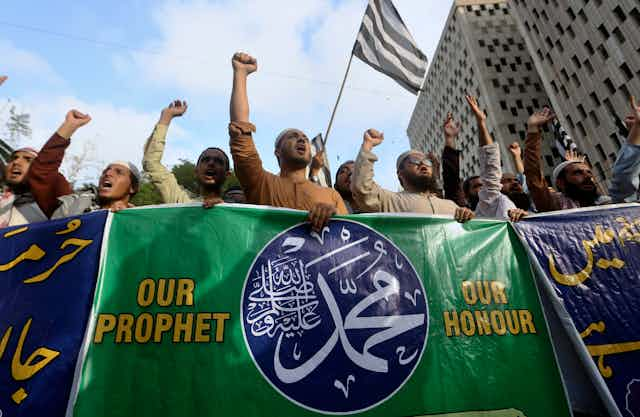The Supreme Court of Pakistan recently drew the ire of religious parties and anti-blasphemy groups for granting bail to a man accused of blasphemy. The court ruled against the retroactive implementation of a law that bans the distribution of an Ahmadiyya exegesis of the Qur'an.
Mubarik Ahmad Sani was arrested on Jan. 7, 2023 and charged with distributing the book in 2019. However, the ban on its distribution was imposed in 2021. The court granted relief to Sani, who had been incarcerated for 13 months. The court observed that Sani should not have been arrested for an act which was not an offence at the time.
The court’s decision did not go down well with some religious conservatives. The government of Punjab, Pakistan’s largest province, submitted a review petition against the decision, and a man in the city of Rawalpindi was arrested for inciting violence against the chief justice on social media.

History of blasphemy laws
Pakistan’s blasphemy laws are built on the foundations laid in the Indian Penal Code of 1860 during British colonial rule. These laws were revised over time in Pakistan, with significant amendments introduced during the dictatorship of General Zia-ul-Haq in the 1970s and ‘80s. In efforts to strengthen his unconstitutional rule, Zia-ul-Haq instrumentalized Islam and introduced several laws that promoted radical forms of Islam, stifled religious freedom and contributed to the spread of religious and sectarian violence.
Anti-blasphemy laws in Pakistan revolve primarily around remarks about the Prophet Muhammad. The law states:
“Whoever by words, either spoken or written, or by visible representation or by any imputation, innuendo, or insinuation, directly or indirectly, defiles the sacred name of the Holy Prophet Muhammad (peace be upon him) shall be punished with death, or imprisonment for life, and shall also be liable to fine.”
While various people have been charged with blasphemy, Pakistan’s Ahmadiyya community in particular has repeatedly been targeted. Sections 298-B and 298-C of the Pakistan Penal Code specifically prohibit the Ahmadiyya community from representing themselves as Muslims, calling their places of worship mosques and reciting the call to prayer.
Exonerating people charged with blasphemy, especially members of minority communities, has historically faced tough resistance. In 1997, a Lahore High Court judge was shot dead in his office for acquitting three Christians in a blasphemy case. In 2011, a Christian federal minister and a provincial governor were killed for demanding a review of the controversial blasphemy laws.
In 2018, violence erupted when a Christian woman, Asia Bibi, was acquitted by the Supreme Court. Bibi had been given a death sentence by the Lahore High Court on blasphemy charges. Fearing harm from anti-blasphemy activists, she fled to Canada in 2019.

Encouraging violence
The promotion of anti-blasphemy laws and harsh sentences has resulted in hundreds of arrests and the killing of at least 90 people in vigilante violence since Pakistan’s independence in 1947.
A 2019 Pew Research Centre report on religious restrictions placed Pakistan among the countries with the highest levels of restrictions on religion. The strict social restrictions have often manifested in vigilante violence.
The glorification of violence towards alleged acts of blasphemy appears to have become a norm in Pakistan. The graves of Ilm Deen, Amir Cheema and Mumtaz Qadri, for example, have become regularly visited shrines. Deen was hanged in 1929 for murdering the Hindu publisher of a controversial book about Muhammad. His story is included in school textbooks.
Cheema attempted to murder a German newspaper editor in 2006 for publishing cartoons of Muhammad and died in the custody of German police. Qadri was executed for killing the governor of Punjab in 2011 because the governor had spoken in defense of Bibi.
Although the Qur'an does not command Muslims to punish blasphemy, the supporters of anti-blasphemy laws rely on rigid interpretations by scholars to justify their acts.
The petition by the Punjab provincial government for the Supreme Court to review its decision, and the continued threat of violence, all highlight the complicated challenges faced in Pakistan regarding the freedom of religion.

